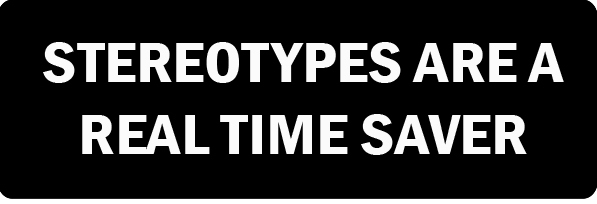7 research-based ways to save time:
.
1) Use The 20 Second Rule
Make things you shouldn’t do take 20 seconds longer to accomplish (moving the ever-buzzing phone across the room) and the things you should do 20 seconds easier.
I like to refer to this as the 20-Second Rule, because lowering the barrier to change by just 20 seconds was all it took to help me form a new life habit. In truth, it often takes more than 20 seconds to make a difference—and sometimes it can take much less—but the strategy itself is universally applicable: Lower the activation energy for habits you want to adopt, and raise it for habits you want to avoid. The more we can lower or even eliminate the activation energy for our desired actions, the more we enhance our ability to jump-start positive change.
2) Have A Solid Daily Ritual
Via 18 Minutes: Find Your Focus, Master Distraction, and Get the Right Things Done:
STEP 1 (5 Minutes): Your Morning Minutes. This is your opportunity to plan ahead. Before turning on your computer, sit down with the to-do list you created in chapter 22, “Bird by Bird,” and decide what will make this day highly successful…
STEP 2 (1 Minute Every Hour): Refocus. …Set your watch, phone, or computer to ring every hour and start the work that’s listed on your calendar. When you hear the beep, take a deep breath and ask yourself if you spent your last hour productively. Then look at your calendar and deliberately recommit to how you are going to use the next hour. Manage your day hour by hour. Don’t let the hours manage you.
STEP 3 (5 Minutes): Your Evening Minutes. At the end of your day, shut off your computer and review how the day went, asking yourself the three sets of questions listed in chapter 27, “It’s Amazing What You Find When You Look.” Questions like: How did the day go? What did I learn about myself? Is there anyone I need to update? Shoot off a couple of emails or calls to make sure you’ve communicated with the people you need to contact.
3) Don’t Be Fast, Be Smooth
A Formula One pit crew — a group that depends on fast, efficient teamwork — found that they weren’t at top speed when they concentrated on speed. It was when they emphasized functioning smoothly as a group that they made their best times.
Via Oliver Burkeman’s wonderful The Antidote: Happiness for People Who Can’t Stand Positive Thinking:
Bosses are more frequently persuaded, though, by Shapiro’s other argument: that getting rid of goals, or focusing on them less fixedly, is often also the best way to extract results from employees. He seduces them with anecdotes about the effectiveness of operating goalessly, such as the tale of the Formula One pit crew with whom he worked, whose members were told that they would no longer be assessed on the basis of speed targets; they would be rated on style instead. Instructed to focus on acting “smoothly”, rather than on beating their current record time, they wound up performing faster.
4) Know The Best Times To Do Things
Know the optimal time to do things so you don’t waste time. Some notable highlights:
- Best time to send emails you want read: 6AM.
- Best time for thinking: Late morning.
- Creative thinking: Creativity can be improved when we’re tired so try brainstorming when daytime sleepiness peaks at around 2PM.
- Best day of the week to eat dinner out: Tuesday (freshest food, no crowds)
- Best day to fly: Saturday (fewer flights means fewer delays, shorter lines, less stress)
Full list is here.
5) Hold Meetings Standing Up
Sick of time-wasting meetings? Bob Sutton’s great book Good Boss, Bad Boss: How to Be the Best… and Learn from the Worst points to a great trick. Hold your meetings standing up:
Sit-down meetings were 34% longer than stand-up meetings, but they produced no better decisions than stand-up meetings. Significant differences were also obtained for satisfaction with the meeting and task information use during the meeting but not for synergy or commitment to the group’s decision.
6) Get More Sleep
Cheating yourself on sleep reduces willpower and it’s this same store of self-control that helps us resist all those bad behaviors like aimless web-surfing:
Researchers have previously argued that sleep is a means of recharging our regulatory resources, and these studies confirm that less sleep does indeed make us prey to counterproductive activities like cyberloafing.
7) Stop Sorting Email
Sorting your email into folders? Don’t bother: “…researchers discovered that those who did no email organizing at all found them faster than those who filed them in folders.“
If you’re the type to meticulously file your emails in various folders in your client, stop, says a new study from IBM Research. By analyzing 345 users’ 85,000 episodes of digging through old emails in search of the one they needed, researchers discovered that those who did no email organizing at all found them faster than those who filed them in folders.
By using search, the non-organizers were able to find the email they needed just as easily as filers. They also didn’t have to spend any time filing email in folders, putting them ahead overall.
Join 25K+ readers. Get a free weekly update via email here.
Related posts:
6 things that will make you more productive
What are the two steps for beating procrastination right *now*?




